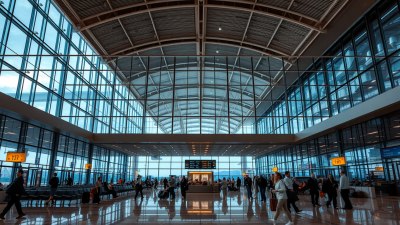Why Traveling for Work Feels Different Than Traveling for Leisure
Explore the contrasting experiences of work and leisure travel and discover how they affect our perceptions and feelings.

Traveling is an experience that many of us cherish, but the feelings and experiences can vary greatly depending on the purpose of the trip. Whether for work or leisure, travel can shape our perspectives, emotions, and even our productivity. Understanding why traveling for work feels different than traveling for leisure requires an exploration of the motives behind travel, the structure of the journeys, and the outcomes we seek. In this article, we delve into the distinct characteristics that make work travel a unique experience.
The Purpose Behind the Journey
The principal distinction between work-related travel and leisure travel lies in the purpose. Work travel is often driven by professional obligations, such as meetings, conferences, or business negotiations. This type of travel is usually structured and often involves specific goals that need to be achieved, making it result-oriented. On the other hand, leisure travel is driven by personal desires, such as exploration, relaxation, or cultural immersion.
Expectations and Mindset
When we travel for work, our mindset is often focused on performance and outcomes. There is an inherent pressure to network, succeed, and make the most out of every meeting or event. This pressure can lead to stress, as we juggle our responsibilities alongside being in a new environment. In contrast, leisure travel allows for a more relaxed mindset where the focus is on enjoyment and exploration rather than meeting demands. This difference in expectations fundamentally alters the experience.
Structure vs. Freedom
Work travel typically follows a rigid schedule, often dictated by meetings, presentations, and deadlines. Travelers may find their days packed with appointments, leaving little time for leisure activities or personal exploration. Leisure travel, however, offers greater freedom in terms of itinerary. Travelers can choose how they wish to spend their time, with opportunities for spontaneous adventures, relaxation, or even immersing themselves in local cultures. This flexibility can significantly enhance the enjoyment of the experience.
The Impact of Location
The location for work travel may not always be a tourist destination; instead, it could be a city known more for its business opportunities than its leisure attractions. While some cities offer remarkable experiences outside of work hours, others may feel purely transactional. Leisure destinations, by contrast, are often carefully chosen for their recreational potential, stunning views, and cultural offerings, enhancing the overall enjoyment of the trip.
Social Dynamics
Traveling for work often involves interacting with colleagues or clients, which can create a different social dynamic. These interactions are usually task-oriented, meaning that they can feel more formal and pressured compared to leisure travel, where encounters can be more relaxed and spontaneous, allowing for genuine connections without professional constraints. Moreover, the transient nature of work travel may limit the depth of these relationships compared to those formed during leisurely interactions, which are built on shared experiences and enjoyment.
Exhaustion vs. Relaxation
Work travel can lead to a different kind of exhaustion. The mental load of maintaining professionalism, managing expectations, and dealing with the stresses of work commitments often leaves travelers feeling drained despite staying in luxurious hotels or visiting beautiful cities. Conversely, leisure travel is typically rejuvenating. Travelers embark on these journeys with the intention to relax, recharge, and have fun. The absence of work-related stresses allows for a liberating experience, encouraging deeper enjoyment and relaxation.
Experience vs. Outcome
The primary goal of work travel is often outcome-oriented, focusing on achieving specific tasks or business objectives, such as closing a deal or securing partnerships. While success can bring satisfaction, it may not always translate to enjoyment of the trip itself. In contrast, leisure trips prioritize experiences over measurable goals. Travelers focus on exploring new cultures, satisfying their curiosities, and creating memories, which tend to bring joy and a sense of fulfillment.
Balancing Work and Leisure Activities
Many travelers find themselves attempting to balance work obligations with leisure activities during work trips. This can lead to a feeling of being rushed or overwhelmed, as one has to switch between 'work mode' and 'leisure mode' almost instantaneously. Finding time to explore or enjoy local attractions amid packed schedules can be challenging, sometimes resulting in half-hearted attempts to make leisure time enjoyable. This tug-of-war can diminish the leisure experience associated with the journey.
Cultural Engagement
When traveling for work, cultural engagement may take a back seat to professional duties. While there may be opportunities to experience local dining or attractions, these are often supplementary to the main agenda of meetings and corporate events. In contrast, leisure travel places cultural immersion at the core, encouraging travelers to engage with local customs, cuisines, and traditions. This deeper engagement often leads to more enriching experiences, as travelers have the time to learn and absorb the local culture rather than just observing it.
Wrap-Up: The Emotional Takeaway
Ultimately, the emotional takeaway of work-related travel versus leisure travel is typically quite different. Work travel may foster skills, networking opportunities, and professional growth, but it can also lead to fatigue and a lack of genuine enjoyment. Leisure travel, on the other hand, emphasizes enjoyment, relaxation, and personal satisfaction, allowing travelers to return home rejuvenated and inspired. While both types of travel have their pros and cons, recognizing these differences can help individuals make conscious choices about their travel plans and optimize their experiences.
Navigating the Differences
Understanding these differences can empower travelers to navigate their journeys more deliberately. One strategy to enhance work travel is to carve out intentional leisure time within the schedule. Travelers can plan their work agendas strategically to include downtime for personal exploration, dining, or leisure activities. This approach can help create a more balanced experience, allowing for moments of relaxation amidst the professional obligations. For leisure travelers, setting goals to explore areas beyond the obvious tourist attractions can create enriching experiences that deepen their appreciation for destinations.
In conclusion, traveling for work and leisure offers distinct experiences shaped by our objectives, mindsets, and the nature of our engagements. By understanding these differences, we can foster more fulfilling experiences in both areas of our travel lives. Whether one finds themselves navigating the structured world of work travel or enjoying the freedom of leisure exploration, recognizing what we seek from our journeys can lead us to optimize our travel efforts and enrich our lives.











